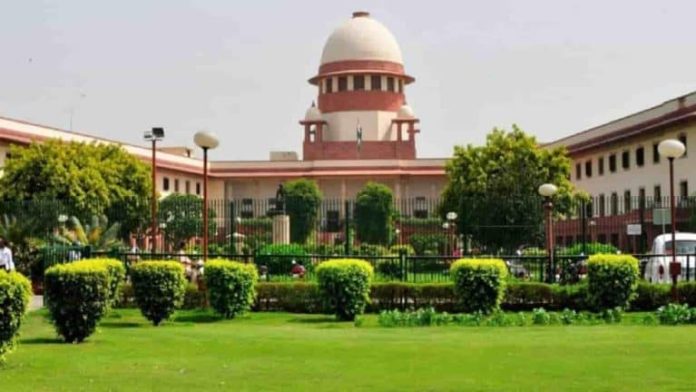The Supreme Court is currently hearing a critical set of appeals challenging state legislation banning online gaming activities, with wide-ranging implications for the burgeoning online gaming industry and the constitutional balance of power between Centre and states.
At the center of the legal battle are three state laws: the Tamil Nadu Gaming and Police Laws (Amendment) Act, 2021; the Tamil Nadu Prohibition of Online Gambling and Regulation of Online Games Act, 2022; and the Karnataka Police (Amendment) Act, 2021. All three statutes have been challenged for attempting to criminalize online games such as rummy, poker, and fantasy sports — games the courts have historically classified as games of skill.
Senior advocates C.A. Sundaram, Arvind Datar, and Mukul Rohatgi have submitted written arguments on behalf of the online gaming platforms and industry bodies, contending that the legislations are unconstitutional, arbitrary, and contrary to established judicial precedent.
In a detailed note outlining the key issues before the court, Senior Advocate C.A. Sundaram argued that the power of a legislature to prohibit or regulate an activity depends on the nature of the activity itself. Games of skill, he submitted, are neither res extra commercium (outside the scope of legal commerce) nor inherently harmful, and therefore enjoy constitutional protection under Article 19(1)(g).
He questioned the State’s legislative competence, pointing out that while Entry 34 of List II permits states to regulate “betting and gambling,” online games of skill fall outside its ambit. Moreover, Sundaram submitted that the central government, under Entry 31 of List I (which governs communication and internet-based services), holds exclusive jurisdiction over online platforms — especially in light of the IT Act, 2000.
Importantly, he raised the issue of discrimination under Article 14, pointing out that while physical games of skill involving stakes are permitted, their online counterparts are criminalized without rational basis. He argued that the Tamil Nadu laws create an arbitrary and inconsistent distinction that fails the constitutional test of equality.
Arvind Datar, appearing on behalf of Head Digital Works Pvt Ltd, supported the Madras and Karnataka High Courts’ decisions striking down the 2021 and 2022 Acts.
He highlighted that these laws obliterated the long-standing legal distinction between games of skill and games of chance, as established in landmark rulings such as R.M.D. Chamarbaugwala and K.R. Lakshmanan v. State of Tamil Nadu. In doing so, the state governments attempted to override judicial doctrine, he said.
“These provisions were not only unconstitutional but also impermissibly reversed binding precedent from the Supreme Court,” Datar argued. He further submitted that the mere involvement of stakes or entry fees does not convert a skill-based game into gambling, citing both the Prize Competition Act, 1955 and judicial interpretation of Article 19(1)(g).
On Article 14, he reiterated that the laws are manifestly arbitrary and fail to establish a rational nexus between the classification and the objective. Offline rummy and poker remain legal, while the same games played online are criminalized — a dichotomy he termed as unsustainable under the doctrine of proportionality.
He also noted that the 2023 Tamil Nadu law, though ostensibly framed to regulate gambling, specifically listed rummy and poker as games of chance without evidence or factual basis. This legal fiction, he said, cannot override judicial findings.
Representing the Federation of Indian Fantasy Sports (FIFS), Senior Advocate Mukul Rohatgi focused on the unique nature of fantasy sports, calling them entirely skill-based competitions distinct from betting or gambling.
“Participants act as virtual team selectors, using statistical knowledge, match conditions, and player performance data. The outcome does not depend on the result of the real-world game, but on the accumulated fantasy points earned through real-life player statistics,” he explained.
Rohatgi emphasized that fantasy sports platforms do not place bets nor profit from game outcomes, instead charging a fixed entry fee for administering the contest. He cited U.S. court rulings, including the decision in Humphrey v. Viacom, and the Unlawful Internet Gambling Enforcement Act of 2006 to support the argument that fantasy sports are legally distinct from gambling.
He further argued that since fantasy sports operate solely on digital platforms, they fall under Entry 31 of the Union List, thus placing them beyond the legislative reach of individual states. States cannot regulate services that have no physical presence and operate nationwide through the internet, he contended.
Rohatgi also objected to the State’s reliance on Entry 33 of List II (sports and entertainment), saying that it applies only to physical, territorially-bound events and not to pan-India digital services.
At the heart of the matter lies a deeper constitutional question: whether states can extend their regulatory reach into internet-based services, especially when central laws such as the IT Act, 2000 and the Intermediary Rules of 2021 already cover digital gaming.
The respondents argue that the impugned laws represent a case of “legislative overreach” and risk setting a precedent where individual states could unilaterally ban or criminalize internet services already regulated by the Centre.
The case also touches upon the misuse of “parens patriae” powers — where the State claims to act as guardian for its citizens. Datar cautioned against excessive paternalism without empirical backing, especially when such restrictions curtail economic rights and legitimate businesses.
With over 400 million digital gamers in India and a thriving industry ecosystem around real-money gaming and fantasy sports, the Supreme Court’s verdict is likely to have far-reaching impact.
Should the court uphold the High Courts’ decisions, it would reaffirm judicial precedent distinguishing skill from chance and secure constitutional protection for online games of skill.
However, a ruling in favour of the states could embolden others to enact similar prohibitions, creating a patchwork of conflicting laws and posing a serious threat to the legal clarity and viability of the digital gaming industry.
The Supreme Court’s decision — expected in the coming months — will thus not only determine the fate of the impugned laws but could also reset the broader conversation around digital governance, federalism, and the rights of online businesses in India.
